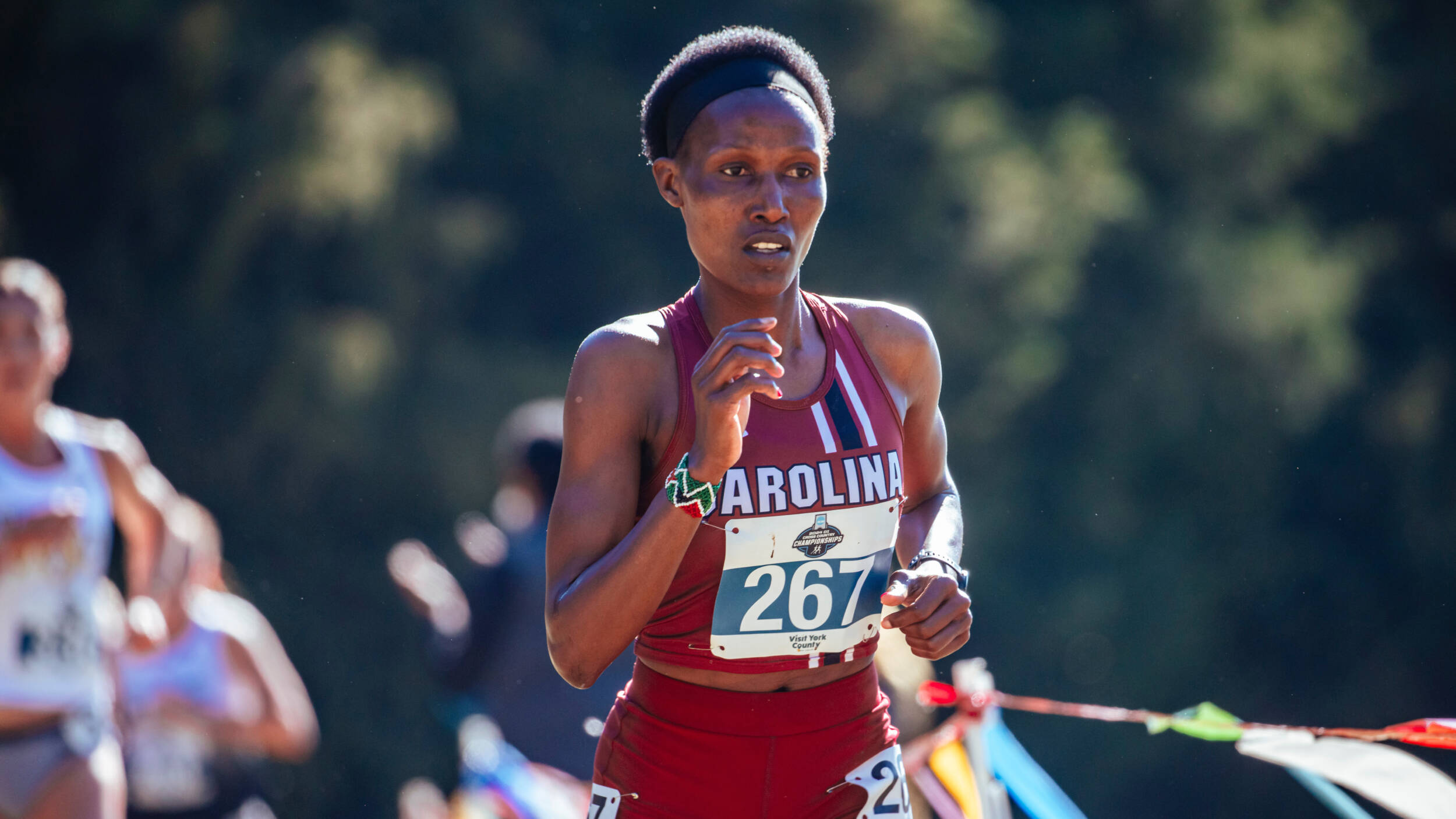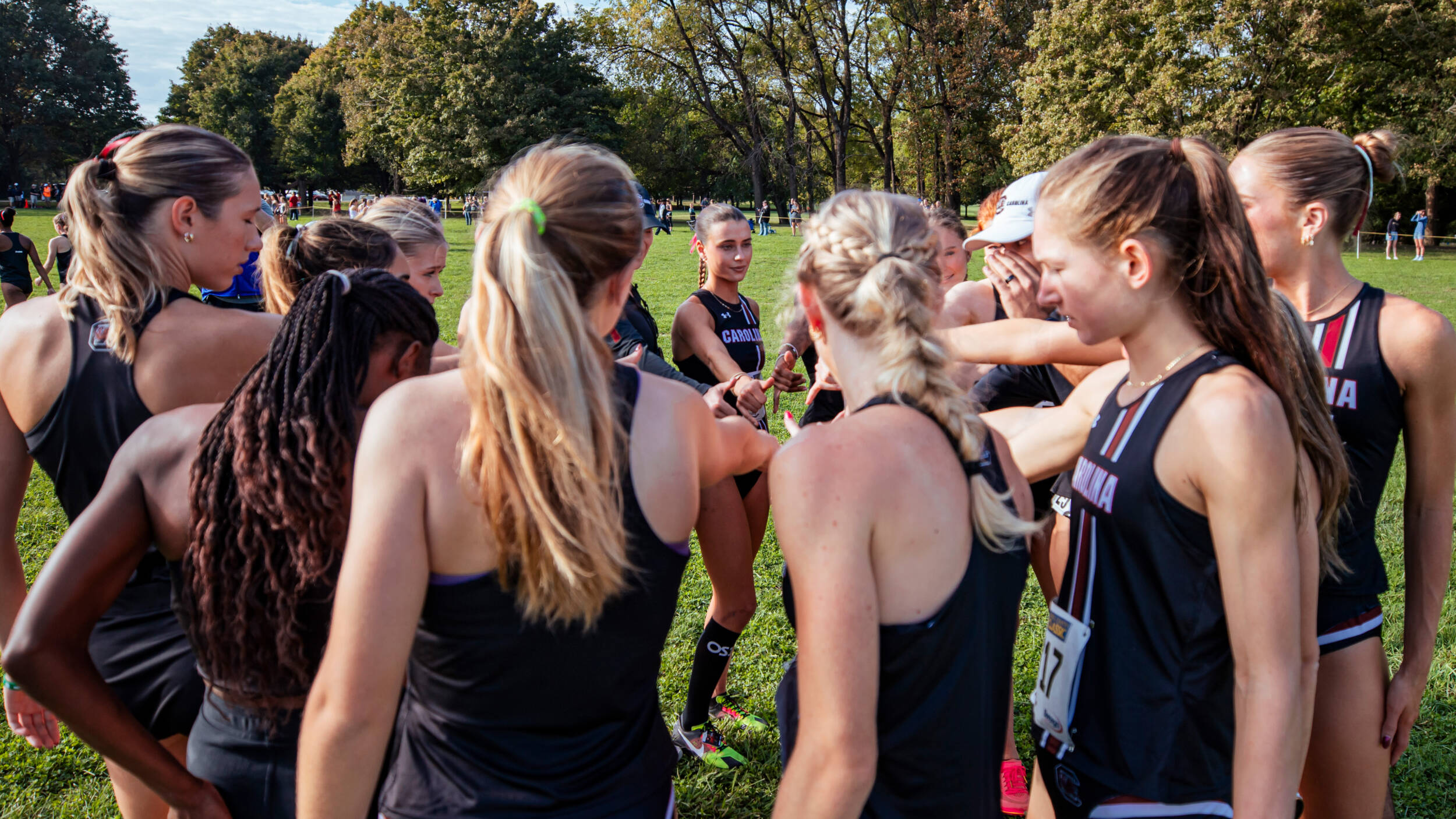Sept. 28, 2011
COLUMBIA, S.C. — South Carolina cross country seniors Nicole Rheinlander and Erin Fedewa have spent countless hours preparing to compete at the highest level, and now they are putting the same effort into making a difference on campus and around the community.
Rheinlander and Fedewa have received a $9,000 grant to go toward providing the university with its first-ever carbon neutral sporting event. The Carolina Leadership Initiative, which promotes a vision for leadership development on campus, awarded them the grant to move forward with the project. They developed the idea after founding the Green Initiative Committee for student-athletes.
“Developing a mission statement to help the athletic department advance as sustainable leaders on campus led to the creation of short term and long term goals to make this mission possible,” said Rheinlander, an international business and accounting major. “After learning about Florida’s entirely carbon neutral football game, we thought it would be a great long term goal to have a similar carbon neutral football game. The Leadership Initiative then made the first steps of this idea possible with a budget to plan a smaller scale carbon neutral athletic event.”
Rheinlander and Fedewa spent hours researching the feasibility of the project when applying for the grant. After the money had been awarded, they turned to South Carolina Director of Sustainability Michael Koman and Coordinator for Life Skills and Community Outreach Erica Nelson, who helped plan a budget. Rheinlander and Fedewa then went to work determining energy consumption at different athletic facilities around campus. They have also been collecting data on what fans drive to events and how far they drive to get to events.
“The first steps of the project are determining how much carbon we can offset based on our budget and how much CO2 the athletic event will emit,” said Rheinlander, who hopes for the carbon neutral event to be a baseball or basketball game in the spring. “We have been working with the athletic department to set up student-athlete tree planting days and compact fluorescent light bulb distributions within the community to serve as carbon offsets for the event.”
Rheinlander and Fedewa understand the workload ahead of them to complete their goal, but Fedewa said going forward with a project like this was an easy decision, considering her career path.
“Deciding to pursue a career related to the environment and conservation has enabled me to see the dire consequences our actions can have on the environment we live in,” said Fedewa, who is a marine science major. “Our individual carbon footprints can be reduced greatly with sustainable and environmentally-friendly decisions in our everyday lives. A carbon neutral event is a great way to show not only student-athletes and fans, but the entire community of Columbia, ways to reduce their carbon footprints and impact the environment.”
If the first carbon neutral event is a success, Fedewa hopes other sporting events will follow by going the carbon neutral route.
“Ideally, I would hope the event triggers larger scale carbon neutral events with the ultimate goal of a carbon neutral campus,” Fedewa said. “In the meantime though, our carbon neutral event will serve as a crucial starting point for these large-scale carbon neutral events. The research and results determined from our event will provide insight to planning future events.”
Despite the money being in hand and the research and planning underway, Rheinlander stressed support from the campus and community will be the key to making the project a success.
“We’ll need the support of the student-athletes, the student body and other Gamecock fans to ultimately make our event carbon neutral,” Rheinlander said. “They can help by planting trees, swapping light bulbs and spreading publicity and enthusiasm about our efforts.”












